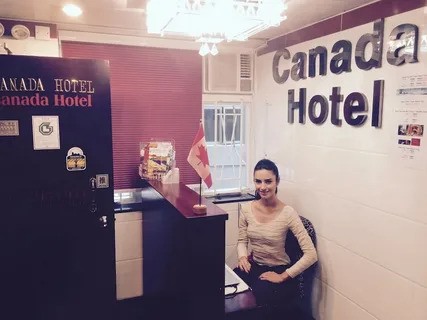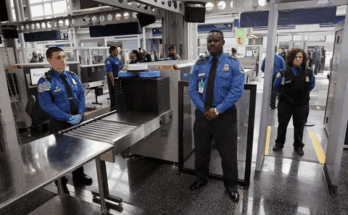Canada Hotel Jobs
Canada, renowned for its breathtaking landscapes, multicultural cities, and warm hospitality, is a global leader in tourism and hospitality. From the rugged beauty of Banff National Park to the vibrant streets of Toronto and Montréal, the country’s thriving tourism industry relies heavily on its hotel sector. Hotel jobs in Canada are more than just employment opportunities—they are gateways to career growth, cultural exchange, and contributing to one of the nation’s most dynamic industries. This article explores the diverse roles available in Canadian hotels, the skills required, challenges faced by workers, and how to navigate this rewarding field.
Canada’s Hospitality Industry: A Pillar of the Economy
Canada’s hospitality sector is a cornerstone of its economy, generating $105 billion in annual revenue and employing over 1.8 million people pre-pandemic, according to Destination Canada. While the COVID-19 crisis temporarily disrupted travel, the industry has rebounded strongly, with 2023 hotel occupancy rates nearing pre-pandemic levels. Major cities like Vancouver, Toronto, and Montréal, alongside tourist hotspots such as Niagara Falls, Whistler, and Québec City, drive demand for hotel staff year-round.
The Canadian government actively supports the sector through initiatives like the Tourism Relief Fund and partnerships with organizations such as the Canadian Tourism HR Council. Additionally, Canada’s welcoming immigration policies, including the Temporary Foreign Worker Program (TFWP) and pathways to permanent residency, make it an attractive destination for international hospitality professionals.
Types of Hotel Jobs in Canada
From entry-level roles to executive positions, Canada’s hotels offer a spectrum of opportunities tailored to diverse skills and aspirations. Here’s a breakdown of key positions:
1. Front-of-House Roles
- Front Desk Agents: The face of the hotel, responsible for check-ins, reservations, and guest inquiries. Requires strong communication skills and multilingual abilities (French is a major asset in Québec).
- Concierge: Provides personalized services, from booking tours to recommending local attractions. Ideal for outgoing individuals with deep knowledge of the area.
- Bellhops/Porter: Assists guests with luggage and provides first impressions of the hotel.
2. Food and Beverage (F&B) Roles
- Servers/Bartenders: Work in hotel restaurants, bars, or banquet halls. Tips often supplement wages.
- Chefs/Cooks: From line cooks to executive chefs, culinary roles demand formal training and creativity.
- Banquet Staff: Manage events, weddings, and conferences, requiring teamwork and time management.
3. Housekeeping and Maintenance
- Housekeepers: Ensure rooms are clean and well-stocked. Physically demanding but critical to guest satisfaction.
- Maintenance Technicians: Handle repairs, plumbing, and HVAC systems. Technical certifications (e.g., electrician licenses) are valuable.
4. Management and Administrative Roles
- Hotel Managers: Oversee operations, staffing, and budgets. Typically require a degree in hospitality management and 5+ years of experience.
- Sales/Marketing Coordinators: Drive bookings through partnerships, promotions, and digital campaigns.
- Human Resources Specialists: Recruit and train staff, ensuring compliance with labor laws.
5. Specialized Roles
- Spa Therapists: Work in hotel spas, offering massages, skincare, and wellness services. Requires certifications (e.g., esthetics license).
- Event Planners: Organize conferences, weddings, and corporate retreats.
Skills and Qualifications for Hotel Jobs
While entry-level roles like housekeeping or serving may require minimal formal education, advancing in the industry often demands specialized skills:
- Customer Service Excellence: Patience, empathy, and problem-solving are vital.
- Language Proficiency: English is essential; French fluency boosts opportunities in Québec and bilingual regions.
- Technical Skills: Familiarity with property management systems (e.g., Opera PMS) or POS systems for F&B roles.
- Certifications: Food Handler’s Certificate, First Aid/CPR, or hospitality diplomas from institutions like SAIT or George Brown College.
- Cultural Competency: Canada’s diverse clientele values staff who respect multicultural backgrounds.
How to Find Hotel Jobs in Canada
- Job Portals: Websites like Indeed, LinkedIn, and Hospitality Jobs Canada list thousands of openings.
- Hotel Chains: Apply directly through career pages of major brands like Fairmont, Marriott, or Four Seasons.
- Government Resources: Use Job Bank (Canada’s official job site) or provincial platforms like WorkBC or Emploi-Québec.
- Networking: Attend hospitality job fairs or join associations like the Canadian Hotel Association (CHA).
- Immigration Programs: Explore the Temporary Foreign Worker Program or the Hospitality Career Pathway for permanent residency.
Challenges in the Canadian Hotel Industry
- Seasonal Demand: Ski resorts and coastal hotels often hire seasonally, leading to job insecurity in off-peak months.
- High Turnover Rates: Stressful workloads and irregular hours contribute to attrition, especially in entry-level roles.
- Cost of Living: In cities like Vancouver or Toronto, high rent and inflation can strain lower-wage workers.
- Language Barriers: In Québec, French proficiency is mandatory for many roles, limiting opportunities for non-bilingual applicants.
Opportunities for Growth and Innovation
- Post-Pandemic Recovery: With travel resuming, hotels are investing in hiring and staff retention bonuses.
- Tech Integration: Roles in revenue management, digital marketing, and AI-driven guest services are rising.
- Sustainability Initiatives: Eco-conscious hotels seek staff trained in green practices, from waste reduction to energy efficiency.
- Career Advancement: Many hotels promote internally—front desk agents can rise to management within years.
- Immigration Pathways: Programs like the Atlantic Immigration Program (AIP) prioritize hospitality workers for permanent residency.
Voices from the Industry: Worker Stories
Lina, Front Desk Manager in Banff: “I started as a part-time receptionist. My hotel sponsored my certification courses, and now I lead a team. The Rockies are my office—it’s unbeatable!”
Raj, Sous Chef in Toronto: “Coming from India, my culinary skills opened doors. Toronto’s diversity lets me experiment with fusion cuisine, and my employer supports my PR application.”
Sophie, Housekeeping Supervisor in Montréal: “It’s tough work, but we’re like family here. Learning French was key to connecting with my team and guests.”
Tips for Success in Canadian Hotel Jobs
- Embrace Flexibility: Shift work and weekends are common—adaptability is key.
- Invest in Training: Certifications like WHMIS or ServSafe make you stand out.
- Leverage Diversity: Highlight multilingual or cross-cultural experiences in applications.
- Focus on Soft Skills: A smile and positive attitude can outweigh a lack of experience.
Canada Hotel Jobs
Hotel jobs in Canada offer more than a paycheck—they provide a chance to be part of an industry that celebrates diversity, fosters lifelong skills, and connects people from around the world. While challenges like seasonal demand and high living costs exist, the sector’s resilience and Canada’s supportive policies create a landscape ripe with opportunity. Whether you’re a student seeking a summer job, a skilled chef aspiring to innovate, or an international worker dreaming of a new life, Canada’s hotels welcome you to check in and stay awhile.
As the country’s tourism slogan goes, “Canada keeps you warm”—and its hospitality industry is no exception.
FAQs
- Q: Do Canadian hotels hire foreigners?
A: Yes! Programs like TFWP and Express Entry help international workers secure jobs and residency. - Q: What’s the average salary for hotel staff?
A: Entry-level roles start at CAD 16–18/hour. Managers earn 50,000–80,000 annually. - Q: Are tips included in wages?
A: Servers/bartenders often earn lower hourly wages (CAD $15) but keep tips, boosting income.



